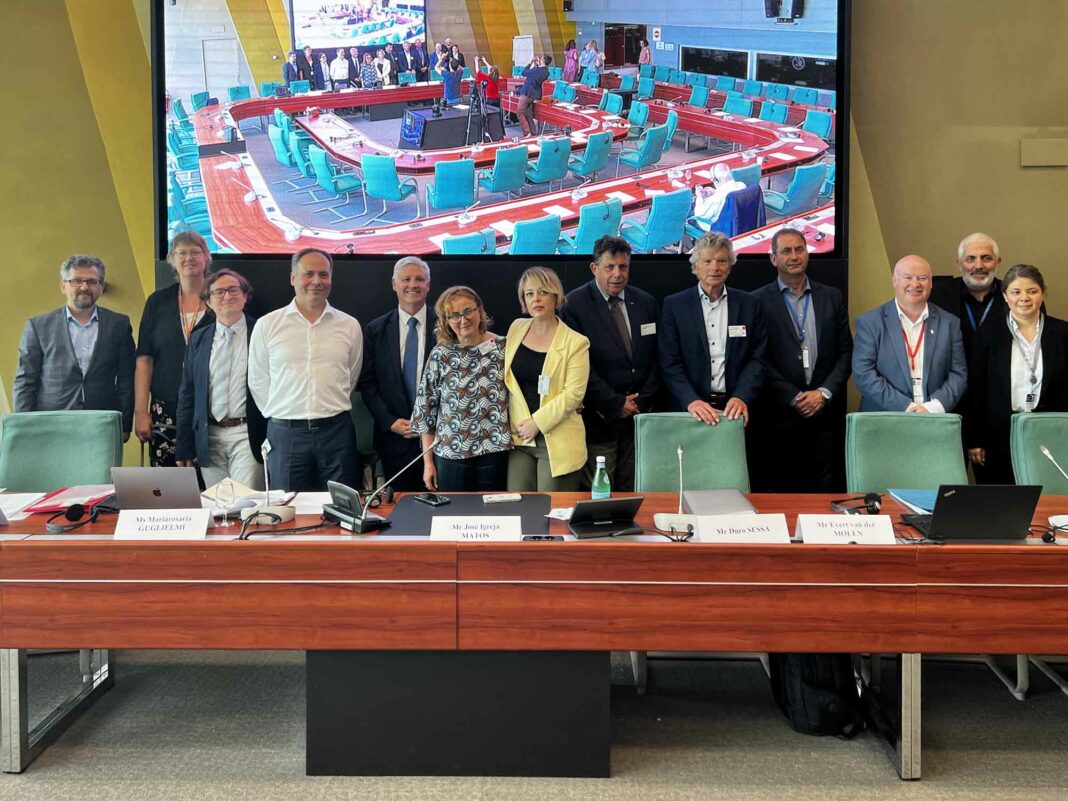Following the coup attempt in July 2016, the Turkish government launched extensive purges targeting perceived opponents, including judges and prosecutors. Thousands of colleagues were dismissed, detained, and arrested on the basis of unfounded allegations and without due process. These purges further compromised the independence of the judiciary and instilled a climate of fear. The closure of our member association, the Association for the Union of Judges and Prosecutors (YARSAV) in Turkey, marked yet another blow to the independence of the judiciary and has far-reaching implications for the rule of law and democratic values. YARSAV has been a prominent and respected organization representing judges and prosecutors in Turkey, working tirelessly to uphold the principles of justice, impartiality, and separation of powers. MEDEL does not recognize the legitimacy of the dismantlement of YARSAV and still considers it as a full member and its board members as its rightful representatives.
Murat ARSLAN is a prominent Turkish judge and the president of YARSAV. He has been a staunch supporter of judicial independence and the protection of the rule of law in Turkey. Murat Arslan has played a crucial role in raising awareness about the challenges faced by the Turkish judiciary, particularly in the context of increasing government influence. Following the failed coup attempt in Turkey, Murat Arslan was arrested, and he has been detained since October 2016. He was awarded the prestigious Václav Havel Prize by Parliamentary Assembly of the Council of Europe in 2017, thus highlighting his unwavering commitment to defending the principles of democracy, human rights, and the rule of law in Turkey.
The President of Medel, Mariarosaria Guglielmi, stressed that Turkish citizens are currently deprived of any effective judicial protection of their fundamental rights, as a consequence of the attacks on the independence of the Judiciary over the years, of the firm grip that the political majority established over the High Council, and of the mass arrests and trials against judges, prosecutors, and lawyers. This situation is exacerbated by the use of anti-terrorism legislation, which has become a powerful tool for the persecution through the justice system of opponents and of all those who have been unlawfully arrested. During her presentation Mariarosaria Guglielmi recalled how the seriousness of the evolution of the rule of law crisis has been clearly addressed in the report of the Commissioner for Human Rights of CoE published in February 2020, where it appears clearly that “the Turkish judiciary has been at the heart of most human rights violations in Turkey for a very long time, either by failing to rectify violations committed by the Turkish authorities or by causing these violations directly”. The report openly states that “the situation regarding the independence and impartiality of the judiciary […] represents an existential risk to the rule of law in Turkey and, by extension, to the respect for all human rights guaranteed under the European Convention on Human Rights. The European Court of Human Rights confirmed the seriousness of this situation through its first findings of violations of Article 18 of the Convention in Turkey’s history within the Convention system, owing to the misuse of judicial processes with ulterior purposes”.
In February 2023, MEDEL jointly submitted with Turkey Tribunal and VSA Advocaten a communication to the Office of the Prosecutor of the International Criminal Court (ICC). The communication provides legal and factual analysis to support the request of starting investigations under Article 15 of the Rome Statute for crimes against humanity: an impressive number of collective actions of imprisonment in violation of fundamental rules of international law that in numerous cases have been considered by the European Court of Human Rights and the UN Working Group on Arbitrary Detention as clear violations of the ECHR; acts of persecution through severe deprivations of fundamental rights in a discriminatory manner, in relation to arbitrary investigations against alleged members of Gülen movement; 463 individual statements of torture; 59 cases of extraterritorial and domestic enforced disappearance.
What has happened and is happening in Turkey does not only concern Turkey and the Turkish people. It calls into question what we have built over the years: Europe as a community based on the primacy of human rights guaranteed by supranational jurisdictions.
We all cannot remain indifferent or silent when confronted with the consequences of the RoL disappearance in Turkey.
In his acceptance speech of the Václav Havel Human Rights Prize, Murat Arslan said: “if there is someone somewhere fighting for rights and freedoms, and taking the plunge, this means there is always some hope for the future”.


